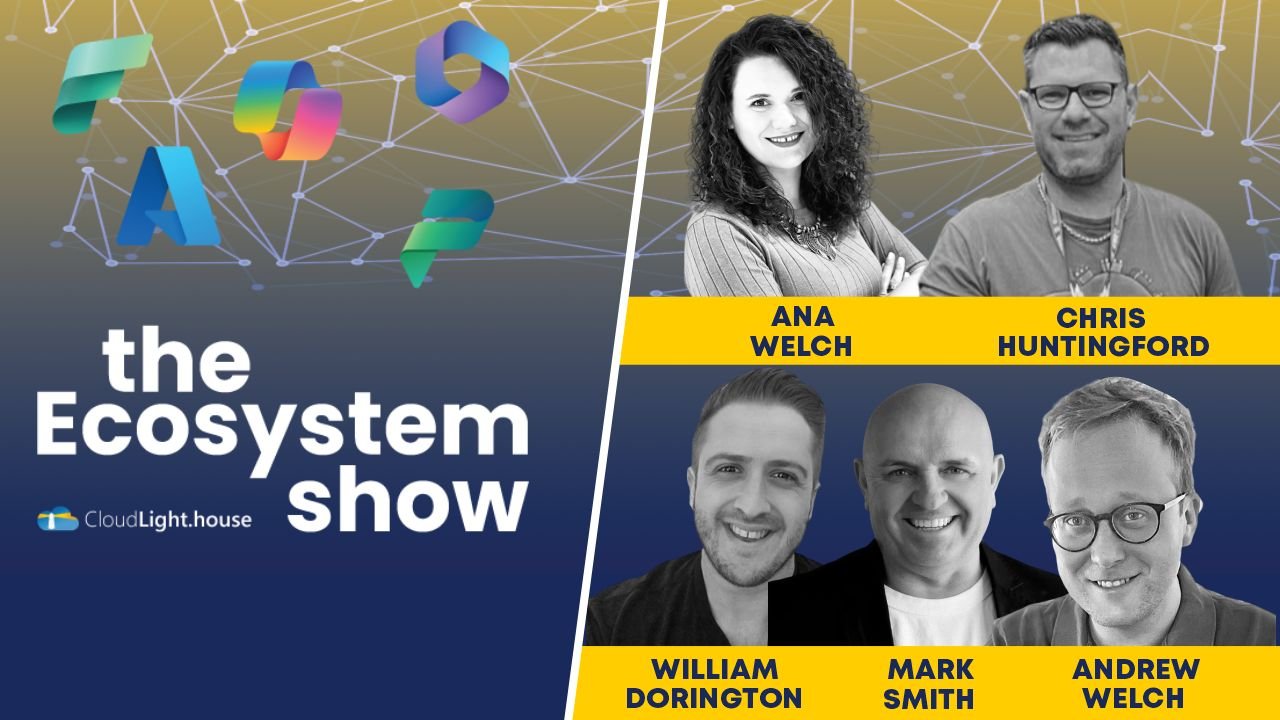
Reflecting on 2024: AI and the ‘Shiny New Object’ Effect
Reflecting on 2024, it’s clear that AI has landed and officially taken on the ‘shiny object effect’. With organizations rushing to utilize the technology, there’s been a tendency to layer AI atop an ecosystem without establishing a strategy for the fundamentals, such as data platform, data consolidation and modernization. A hope for 2025 is the normalization of AI to avoid this, and the progression of autonomous agents that learn and mimic human communication preferences, advancing beyond basic chatbots to more immersive and context-aware AI agents.
Additionally, this past year has made it apparent that not all organization’s are creating conditions for hiring across boarders, and allowing top talent to work on key projects regardless of their geographic location. A shift in this would provide multiple benefits: simplifying projects whilst widening the talent pool, supporting the freedom of dedicated workers, and releasing brain power and capital in areas that will benefit from economic growth.

Data Integration: The Key to Operational Success
In this episode, Ana, Andrew, and Chris discuss various themes including the technical difficulties faced during remote recordings, the influence of technology on elections, the challenges of cybersecurity, and the complexities of data integration and security. They also explore how algorithms shape political messaging and the implications of these technologies on society. In this conversation, the speakers discuss various themes including the impact of social media on public perception, insights gained from major conferences like Ignite, the evolution of podcasting in the tech space, and the importance of ecosystem-oriented architecture in organizations. They emphasize the need for a clear vision and cultural readiness for successful transitions in technology and business strategies.

Announcements from Microsoft Ignite 2024
Microsoft Ignite 2024 featured over 200 AI sessions. Key announcementsincluded Azure SQL transactional databases for app development, Co-pilot Studio in Power Apps for mini agents, deeper RAG capabilities with Azure AI Foundry, new managed security and operations in Power Platform, and updated governance and licensing for Co-pilot Studio.This podcast episode also tackles the rise of shadow AI, emphasizing the need for governance as 78% of workers use unsanctioned tools. Beyond the tech, it reflects on the joy of hands-on collaboration, like data modelling and brainstorming on whiteboards, proving that going back to basics can still drive innovation. What’s your top Ignite takeaway?
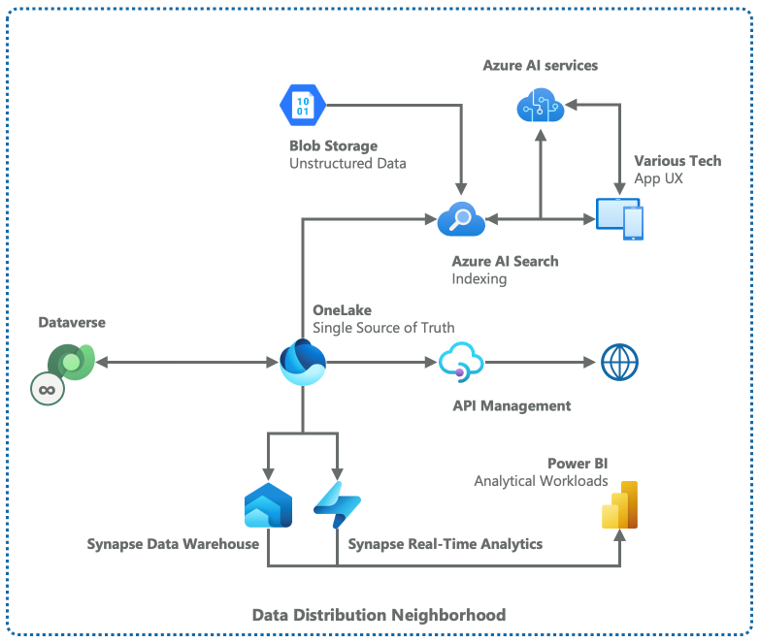
Data Distribution in Power Platform
When taking on the question of how Power Platform integrates with Azure data services, Point-to-Point, Data Consolidation, Master Data Node, and Data Distribution evolve a similar theme. Specifically, each focuses primarily on transactional data during any given users interaction with it. “Data Distribution” is different, focusing more on data distributed for analytics, enterprise search, integration with third-party or external sources via API, data science workloads, or training or augmenting a large language model (LLM). This blog overviews the Data Distribution pattern.
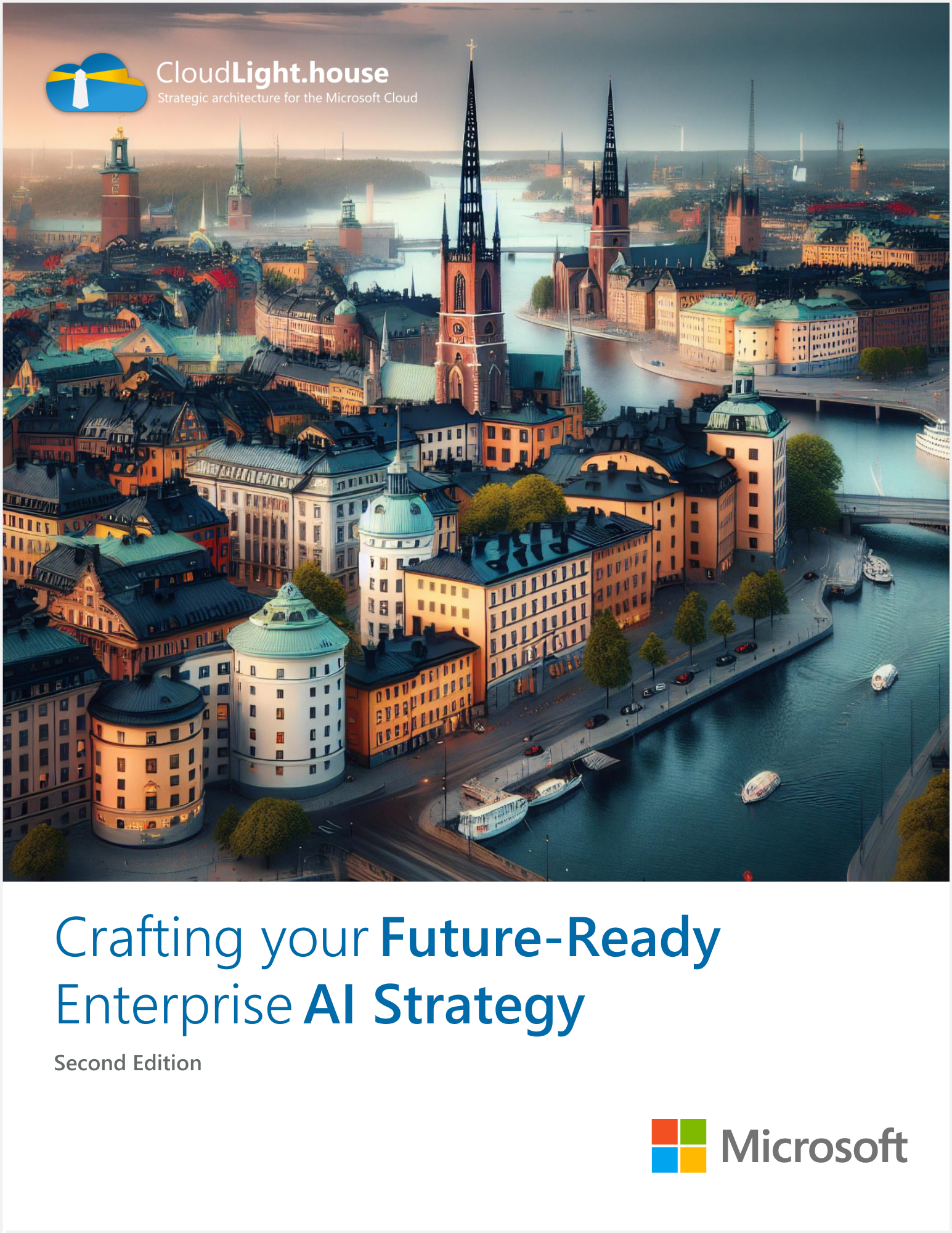
Whitepaper: “Crafting your Future-Ready Enterprise AI Strategy, e2”
It has become obvious how difficult so many organizations are finding it to actually craft and execute their AI strategy, in part because of the (often) decades they’ve spent kicking their proverbial data can down the road, in part because it turns out that enterprise-grade AI really does require the adoption of ecosystem-oriented architecture to truly scale, but largely because many organizations have no idea where to start. Many lack the wherewithal to really assess where they stand on day one, and to identify areas where they must mature to get to day 100 (and beyond).
We’ve learned a great deal about maturity and readiness for - and responsibility to the ethics of - AI over the past year, as well. It’s now time to broaden the thesis, so in this second edition we offer a model through which organizations may realistically assess their current maturity to adopt and scale artificial intelligence, and then identify specific areas to invest time, talent, and funding along their journey.

Whitepaper: “Ecosystem-Oriented Architecture in the Public Sector”
This whitepaper offers CIOs, enterprise architects, and other public sector technologists a comprehensive introduction underscoring the need to adopt ecosystem-oriented architecture (EOA) to build scalable, resilient, and flexible cloud ecosystems that can absorb successive waves of technological change.
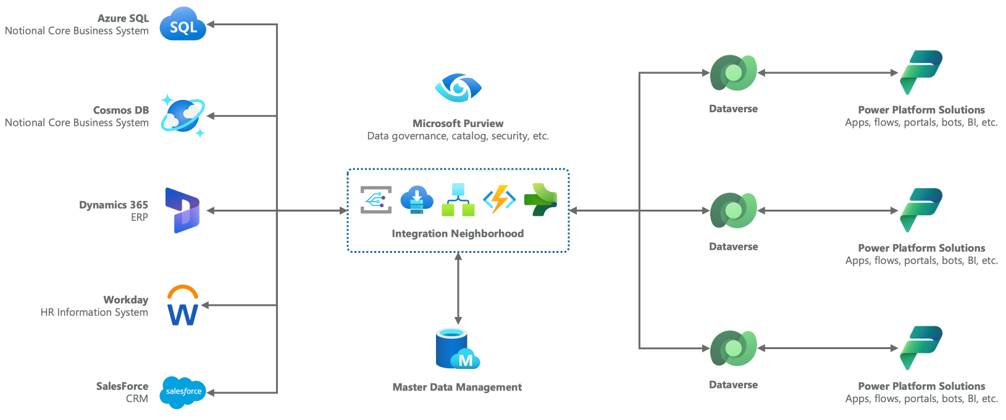
Five strategies to integrate Power Platform in your data platform architecture
When comparing architectural models for Power Platform, it’s important to avoid the instinct to choose just one. Instead, the goal is to explore various approaches that enable different scenarios for integrating Power Platform solutions with enterprise data. Each organization should strategically mix and match these approaches, considering factors like performance, flexibility, maintainability, and cost. This strategy allows for creating adaptable patterns within a cloud ecosystem where Power Platform plays a key role.

Whitepaper: “Scaling your Enterprise Cloud with Power Platform”
Power Platform has been woven into the fabric of enterprise IT for far longer than most people realize, and, as such, is often the backbone of mission-critical “Tier 1” workloads. This white paper is the technology leaders’ guide to strategic Power Platform in a modern cloud ecosystem, diving deep on some of the most important methods of scaling your entire enterprise cloud—data, AI, applications included—with Power Platform: Using Power Platform with your enterprise data, lowering your long-term costs, securing and governing your data to reduce risk, infusing AI into daily work, then scaling AI across your org, and scaling your cloud and other tech investments with specialized capabilities.
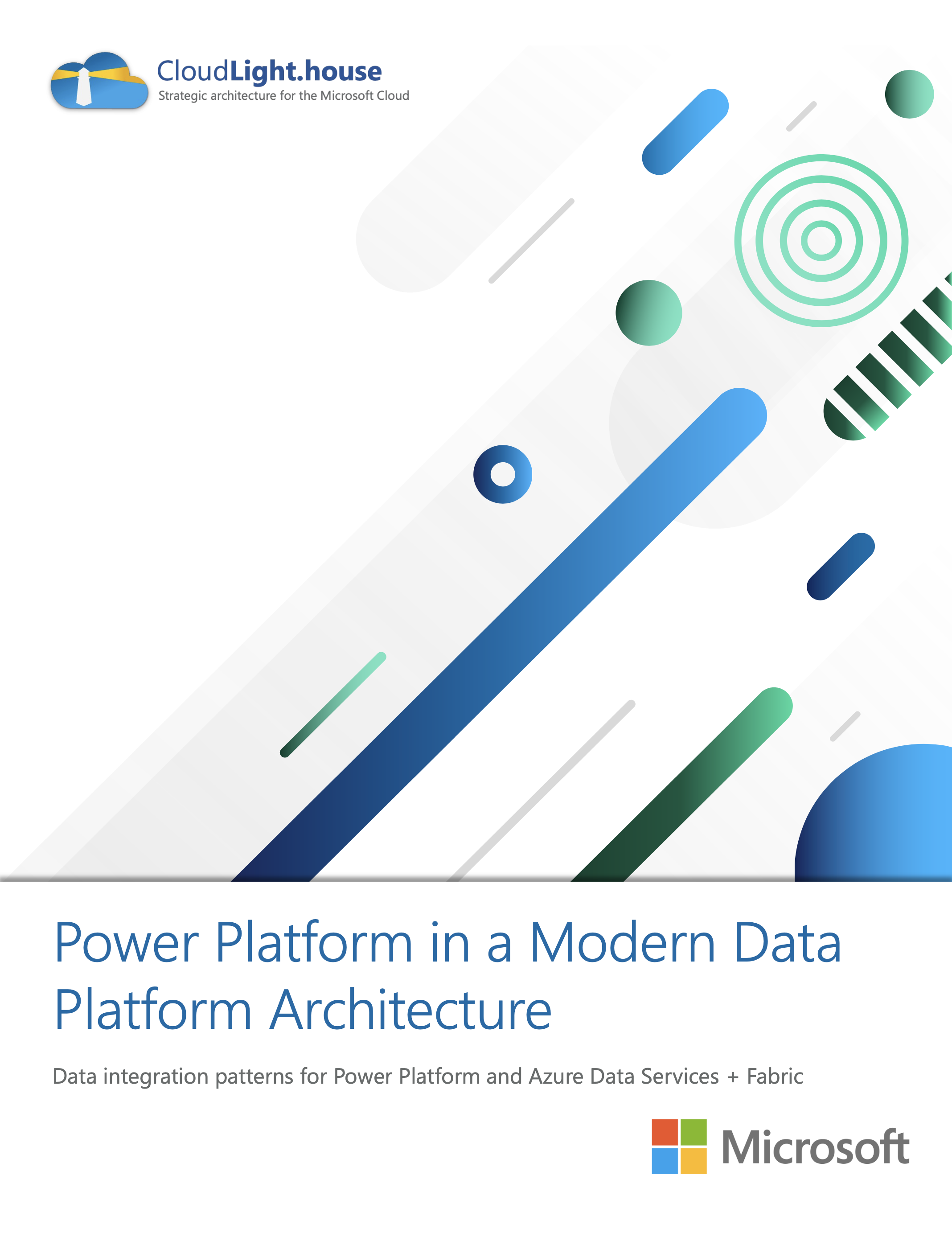
Whitepaper: “Power Platform in a Modern Data Platform Architecture”
For all the talk about Power Platform as a ‘’low-code’’ tool (and this is the last time I will use the word), for all the attention given to how supposedly easily it allows non-technical users to create simple apps, Power Platform’s greatest value lies not in the app, but in the data the app collects or serves back to its users. Power Platform isn’t an app phenomenon. It’s a data phenomenon. This white paper takes on the question of how Power Platform integrates with Azure data services including Microsoft Fabric, outlining five patterns that organizations ought to mix and match to extract Power Platform’s greatest value.
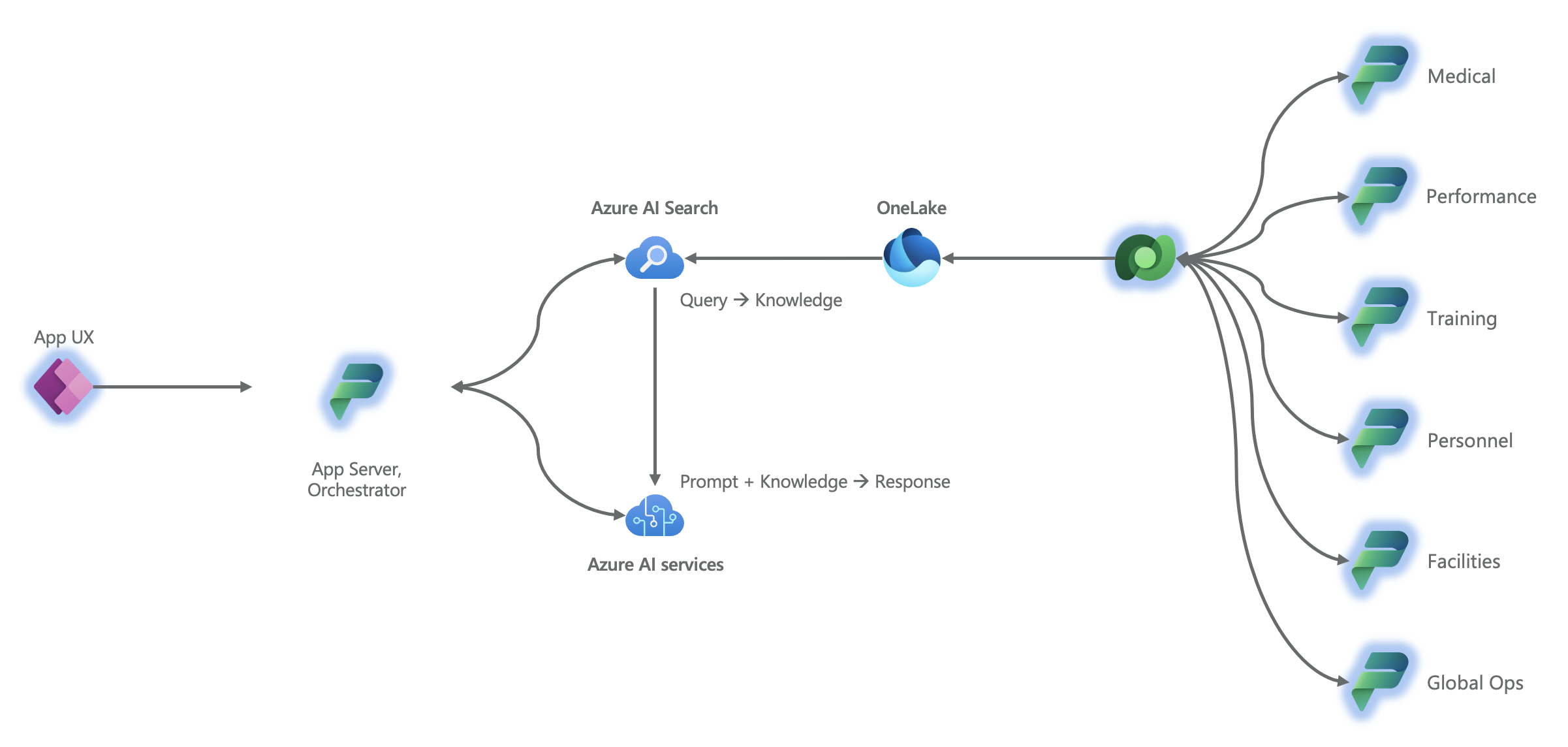
How Power Platform scales generative AI across an organization
Power Platform scales AI and the data platform by providing a composable means of both data collection and delivery of insights and AI capability back to the user. Meanwhile, the great, often unsung capability of Power Platform is not the “app”, rather the ability (via Dataverse) of data transacted in a Power Platform solution to hydrate downstream data distribution scenarios such as analytical workloads, enterprise search, and—you guessed it—whatever AI infused workload you dream up. Let’s explore this.
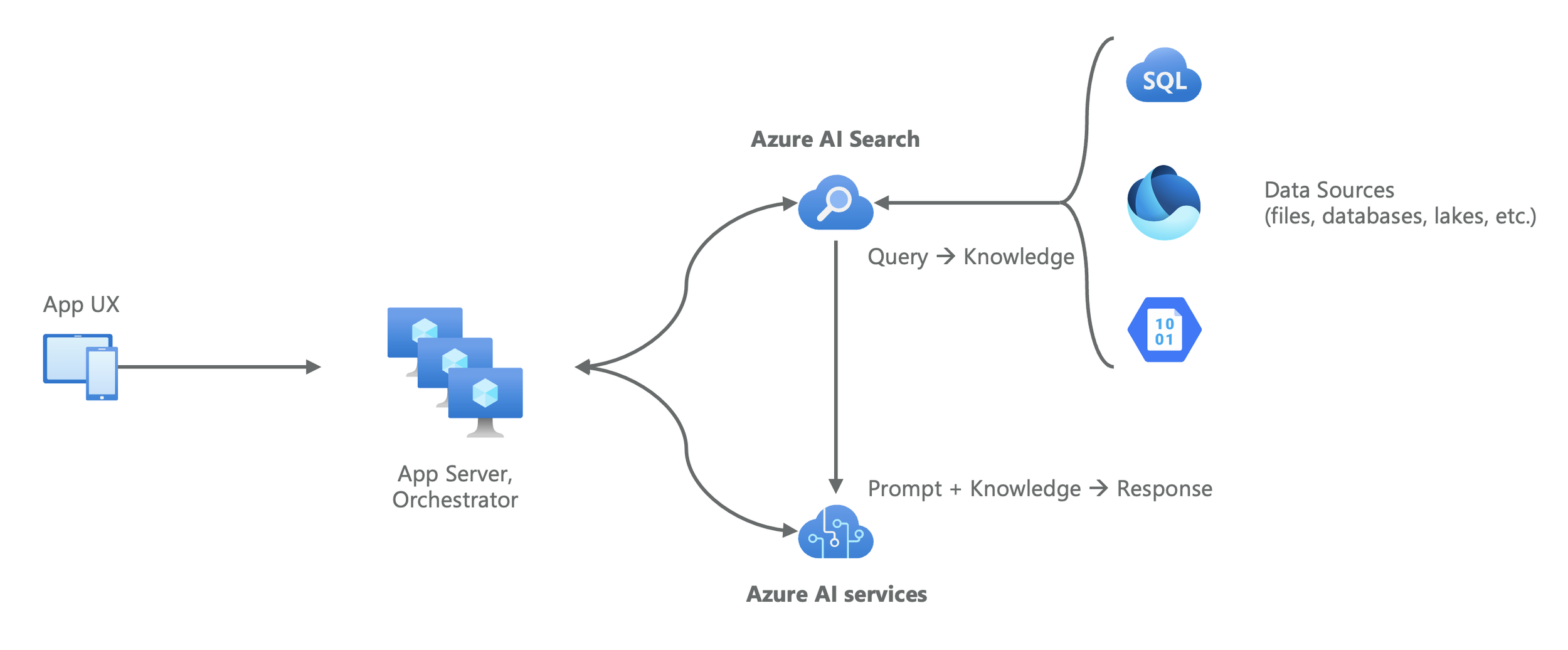
RAG and the fundamentals of AI acting on enterprise data
CIOs and enterprise architects need not be experts in the technical mechanics of AI to formulate and execute an effective AI strategy. That said, it is critical that leaders driving their AI strategy understand this basic concept of how institutional AI—that is to say, AI workloads specific to your organization—both requires and acts on enterprise data. This approach is what we call “Retrieval Augmented Generation” or “RAG”, which you may have heard of. The name is quite literal: Here we are augmenting the generative pre-trained (and now you know what “GPT” stands for) model with data that we have retrieved from the organization’s data estate.

Whitepaper: “Crafting Your Future-Ready Enterprise AI Strategy”
It is yet unknown if artificial intelligence is more akin to a “great inventions” of the 19th and 20th centuries, or if it will ultimately represent another more incremental evolution of existing capabilities. The former—as seems more likely given the immense investments being made today—will present significant challenges to nearly every organization that, having become accustomed to incremental change, is suddenly faced with a “great inventions” caliber paradigm shift that AI seems to portend. This white paper explores foundational concepts for AI technology and your AI strategy, five pillars for your AI strategy—data consolidation, data readiness, incremental AI, differential AI, scaling AI—and trends that are likely to shape AI in organizations going forward.

